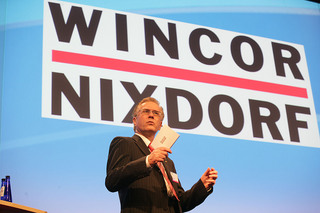The central bank governor is warning that the euro is not the cure for all Poland's ills
Published:
19 January 2005 y., Wednesday
The central bank governor Leszek Balcerowicz is warning that the euro is not the cure for all Poland's ills.
Leszek Balcerowicz believes the government should focus on reforms to yield long-term economic growth, rather than rushing to join the single currency.
"I never said that Poland should enter [the eurozone] at any cost. I said the best strategy is to fulfill conditions for euro entry in a rapid and sustained way," said Balcerowicz, while attending a meeting of central bank governors last week. "The process of EU enlargement was conducive to reforms. The idea of euro entry should be a similar incentive."
Balcerowicz has frequently said that eurozone entry is a political, rather than an economic issue, and that taxes and spending are currently too high for single-currency membership. He also said that tougher reforms were necessary to free Poland from the shackles of long-term high unemployment. In the 1990s, his economic treatments helped Poland recover from the collapse of communism.
"It will pay for Poland to undergo fiscal consolidation," he said. "Unemployment in Poland is not due to over-excessive market-oriented reforms. All of the reasons are structural. There has been some labor market liberalization but I think we need much more decisive action."
Despite his comments, the Civic Platform (PO) party, which is expected to win the next general election, says eurozone entry by 2009 will be a key objective for the party. "Our government will have the strategic goal of adopting the euro by 2008 or 2009. We will do everything to make sure it happens," said Zbigniew Chlebowski, deputy head of the Platform's parliamentary group.
Chlebowski also hinted at the future government's economic policy plans, saying major reform initiatives-such as its flat-tax proposals-would be launched at the start of 2007, not in 2006 as earlier signaled. He also said that limiting the budget deficit in 2006 would be difficult because of the outgoing government's spending promises but that fiscal policy would tighten from 2007.
Šaltinis:
wbj.pl
Copying, publishing, announcing any information from the News.lt portal without written permission of News.lt editorial office is prohibited.
The most popular articles
 Wincor Nixdorf AG closed the first six months of fiscal year 2008/2009 with a 4 percent increase in net sales and a 2 percent increase in operating profit (EBITA).
more »
Wincor Nixdorf AG closed the first six months of fiscal year 2008/2009 with a 4 percent increase in net sales and a 2 percent increase in operating profit (EBITA).
more »
 Raiffeisen Bank Polska SA, a subsidiary of Raiffeisen International, a leading financial corporation in Central and Eastern Europe, has deployed "VIP Mobile," a next-generation mobile banking solution.
more »
Raiffeisen Bank Polska SA, a subsidiary of Raiffeisen International, a leading financial corporation in Central and Eastern Europe, has deployed "VIP Mobile," a next-generation mobile banking solution.
more »
 Commission calls for help with reforming EU fishing.
more »
Commission calls for help with reforming EU fishing.
more »
 IFC, a member of the World Bank Group, and SEB Bank today launched an innovative transaction that will support lending of around €50 million to help small and medium enterprises in Lithuania switch to renewable sources of energy.
more »
IFC, a member of the World Bank Group, and SEB Bank today launched an innovative transaction that will support lending of around €50 million to help small and medium enterprises in Lithuania switch to renewable sources of energy.
more »
 Is your money well spent at EU level? Every year, in April, the EP concludes its examination of EU spending for the financial year closed 16 months previously.
more »
Is your money well spent at EU level? Every year, in April, the EP concludes its examination of EU spending for the financial year closed 16 months previously.
more »
 The right to compensation for poor service, the right to change gas and electricity suppliers and comparable prices are just three aspects of the proposed “third energy package” being debated today by MEPs.
more »
The right to compensation for poor service, the right to change gas and electricity suppliers and comparable prices are just three aspects of the proposed “third energy package” being debated today by MEPs.
more »
 As access to ATMs became free from April 1, many banks are expected to consider consolidating their teller operations instead of aggressively expanding ATM network.
more »
As access to ATMs became free from April 1, many banks are expected to consider consolidating their teller operations instead of aggressively expanding ATM network.
more »
 Crisis or no crisis, secure identity cards will still be needed to cross borders…
more »
Crisis or no crisis, secure identity cards will still be needed to cross borders…
more »
 A fund-raising initiative has been launched among 170,000 employees in all 22 countries where the Group operates
more »
A fund-raising initiative has been launched among 170,000 employees in all 22 countries where the Group operates
more »
 This year AB Bank SNORAS also joined the promotional event "Praise excellent service!" which is held in March every year.
more »
This year AB Bank SNORAS also joined the promotional event "Praise excellent service!" which is held in March every year.
more »